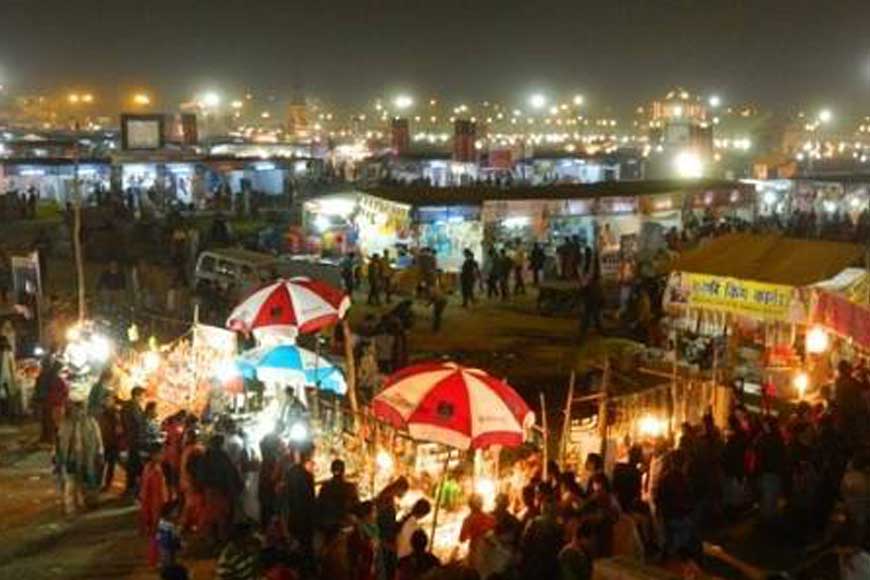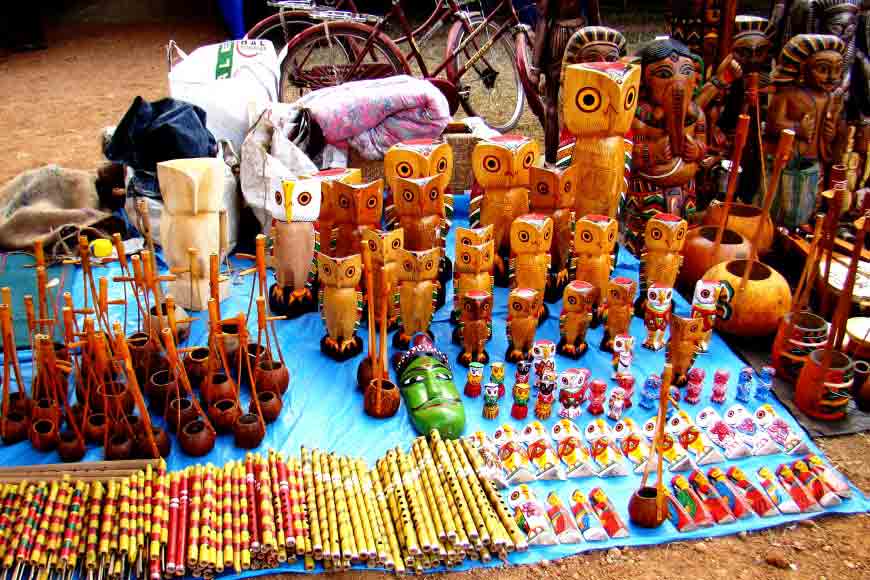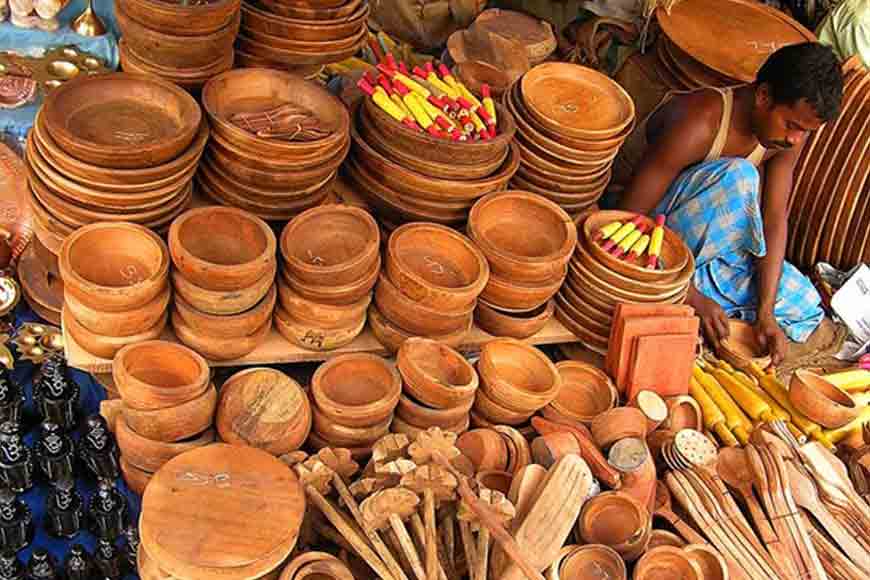Looking back at the first Poush Mela of Santiniketan

In this 2-part series, GB brings you the inaugural Poush Mela of Santiniketan on 7th Poush 1892
p>Poush Mela is synonymous with Santiniketan and is one of the prime cultural festivals of Birbhum district. The festival is celebrated at Santiniketan Fair Ground near Bolpur railway station annually and is thronged by people from different cultures, traditions and countries, who come to participate in this three-day affair. Over the years, Poush Mela has turned into an annual ritual, a pilgrimage of sorts for many.
Santiniketan was earlier called Bhubandanga. Debendranath Tagore acquired the plot from the landlord (zamindar) of Raipur to set up Santiniketan. On December 21, 1843 (Poush 7, 1250 according to the Bengali calendar) Debendranath along with 20 followers, were formally inducted into the Brahmo Samaj by Pundit Ramchandra Vidyabagish. By this time Debendranath knew this was his life’s calling and he chose to spend his time dwelling upon spiritual truth, which became his lifelong pursuit. He became totally involved in the socio-religious reform movement, working ardently to propagate the tenets of the Upanishads which form the crux of the Brahmo religion. It later earned him the revered sobriquet of ‘Maharshi’ (Maha-rishi, a great sage).

It was no way a smooth sailing for Debendranath. In the initial years, the reformist Brahmos had to face staunch opposition from the orthodox Hindu community who saw them as heathens out to defile their age-old religious and social beliefs and customs. The Brahmos promoted women’s education, introduced widow remarriages and inter-caste marriages, questioning the very hierarchy of caste, and democratising education. Unlike traditional Hindus, Brahmos gave as much importance to moral uprightness as to a spiritual life. In traditional Hinduism, moral purity was considered subservient to the spiritual call. Not so for the Brahmos. The Brahmo Samaj, under Debendranath’s aegis, made an enormous impact ideologically and culturally on Bengal and created an enduring value system in the region.
Debendranath’s concentrated efforts bore fruit and within two years of him converting to Brahmoism, 500 people from different walks of life followed suit. It was Debendranath’s idea to organize a small homely fair at the venue to get acquainted with and interact with fellow Brahmo Samaj followers, deliberate and spread the ideals of Brahmo religion. The first Poush Mela was held at Goriti Garden at Palta on Poush 6, 1767. Debendranath, the magnanimous host, had made comfortable arrangements on eight or nine boats to transport all his guests to the venue from Calcutta.
The next day (Poush 7), at dawn, the surroundings reverberated with the soulful chorus of men chanting hymns in praise of Brahma, the Creator of the Universe. The guests spent the rest of the day meditating. This was the first Poush festival celebration. Debendranath discovered the pristine land at ‘Bhuvandanga (Santiniketan) much later, in 1862. In 1863, Maharshi took on permanent lease of 20 acres (81,000 m2) of land, with two Chhatim trees at a yearly payment of Rs 5, from Bhuban Mohan Sinha, talukdar of Raipur, Birbhum. He built a guest house there and named it Santiniketan (the abode of peace). Gradually, the whole area came to be known as Santiniketan.

The well-shaded Chhatimatala provided the perfect tranquil retreat and meditation site for Debendranath. Maharshi's trust deed was made on March 8, 1888 and the Santiniketan Ashram was opened to public. He earmarked a whooping Rs 18 lakh from his zamindari earnings for the upkeep of the property at Bhuvandanga. In the Trust Deed it was categorically mentioned to organize a fair annually on Poush 7. “The trustee will organize a fair every year to create religious feeling among the people. The preachers of all the religions may come here to discuss their theories and ideology. In this fair no idol will be worshipped, no vulgar entertainment would be allowed. Everything except liquor and meat will be allowed to be sold. If there is any income from this fair in time, the trustees will spend the money for the improvement of the fair or the ashram…”
(To be continued)









